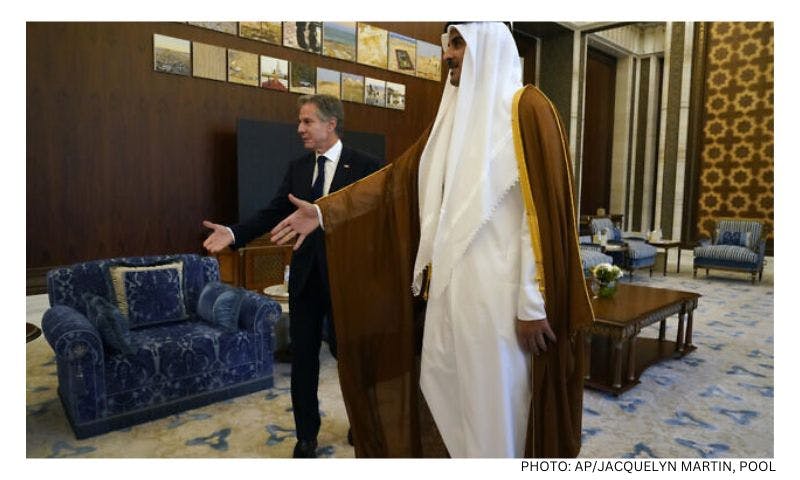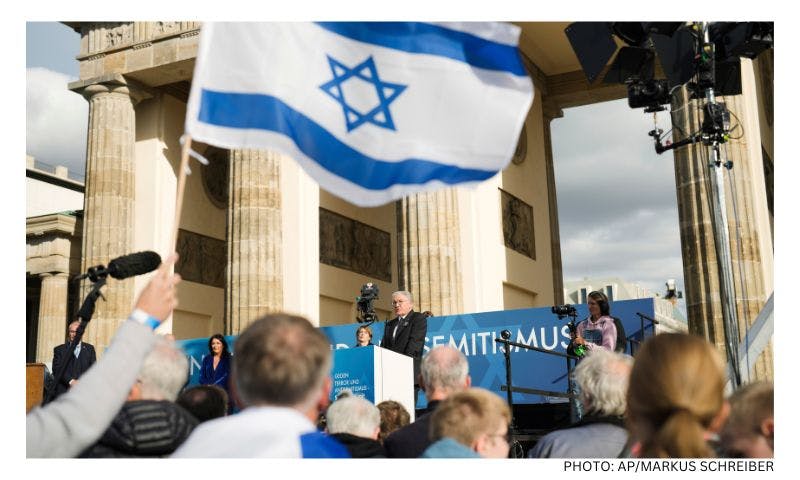Published: 1 October 2021
Last updated: 4 March 2024
This week the Bedouin village of Khan al-Ahmar was granted another stay of execution from destruction. Residents and visiting Israelis tell ELHANAN MILLER why saving the village matters so much
A DOZEN CARS were parked in the centre of the dusty village of Khan al-Ahmar on a Succot Friday. Jewish Israeli families, many of them with young children, heeded a Facebook event called Tents from the inside, inviting them to experience the Bedouin lifestyle first-hand. The title was a naughty take-off on Open House Worldwide events, which invite visitors to sample unique architecture in their cities.
But Tents from the inside, organised by an Israeli grassroots group called Friends of the Jahaleen, was far from just an opportunity to entertain Israeli vacationers on their day off. It was also a political attempt to raise awareness for the plight of the Jahaleen tribe who inhabit this small hamlet which was doomed for destruction by the Israeli Supreme Court in September 2018.
“Our goal is to have Israelis meet the inhabitants face to face and break the image they get from the news headlines about Khan al-Ahmar, that of a menacing Palestinian Authority outpost bent on grabbing state land,” says Chaya Tal, who joined Friends of the Jahaleen as a volunteer in the summer of 2018, seeking to put her Arabic language skills and experience with informal child education to good use.
“We want to foster empathy towards a community facing eviction.”

Judging from the sidelines, it looked like Tal’s strategy was working. Israeli teens with black yarmulkas posed for their phone cameras riding a donkey, and families sat under a tarp eating yellow rice with yogurt and thin pita bread known as shraq.
Eid Jahaleen, 54, the village elder who was busy pouring black coffee to his Jewish guests in small paper cups, said his community was used to hosting Israeli and international visitors, but admitted the timing now was different.
A native of Khan al-Ahmar, situated 10 kilometres east of Jerusalem along the highway heading down to the Dead Sea, Eid said his parents relocated to the area in 1952 after being driven out by the IDF from the Arad region, overlooking the Dead Sea, where his tribe originated from.
At the time, Khan al-Ahmar was part of the Jordanian-controlled West Bank, and the tribe settled there due to its abundance of water and proximity to Jerusalem, where they would sell their butter and yogurt.
A shepherd community, the grazing areas of Khan al-Ahmar were gradually limited by the growth of nearby settlements, forcing the tribesmen to go work as labourers in the Maaleh Adumim industrial zone and other Jewish businesses.
‘Pressure is placed on us by the Israelis, the Palestinians, the Europeans, the Americans, the entire international community.’
But the construction of a small community school in 2009 brought about a series of punitive measures by Israel, most notably the denial of work permits in Israeli settlements. None of the structures in Khan al-Ahmar are legal, with no building permits given to a community never authorised or recognised by official Israel.
The village is also off the state’s electric grid, its power provided by a combination of solar panels donated by Comet-ME, an Israeli-Palestinian NGO, and diesel-powered generators.
“It’s economic warfare,” Eid says. “Israel wants us to lose our sources of income so that we’re forced to seek alternatives in Ramallah or Bethlehem. The state wants us to move from here, but at the same time to say, ‘I didn’t move the Bedouins, they moved themselves’.”
Since the 2018 Supreme Court decision allowing Israel to evict Khan al-Ahmar’s 180 residents, the community’s name has been repeatedly used by detractors of former Prime Minister Benjamin Netanyahu to question his right-wing credentials. “Has he already vacated Khan al-Ahmar?” former Netanyahu ally Avigdor Liberman would snidely wonder repeatedly in TV interviews as a member of opposition.
During a tour of the village in July 2020, Liberman claimed that Netanyahu had stopped the eviction at the last moment two years earlier, citing the threat of Israel being indicted for war crimes at the International Criminal Court (ICC).
“So we didn’t remove Khan al-Ahmar, and meanwhile the ICC decided to open an investigation against us anyway,” Liberman was quoted by Maariv as saying.
On September 5, during yet another Supreme Court sitting, the state requested an additional stay in the evacuation of the community, citing ongoing negotiations with the residents on relocating the community into Israel, and the danger of international wrath.
The Court granted the extension on Wednesday, allowing the State to reach a final resolution by March 2022.
But it isn’t only Israel placing heavy pressure on the Jahaleen community. The Palestinian Authority has taken over the legal defence of Khan al-Ahmar, and has led an uncompromising strategy vis-à-vis Israel. In July 2018, PA President Mahmoud Abbas condemned the “forceful deportation of the residents of Khan al-Ahmar from their land” and called on the UN to provide them with international protection.
‘Khan al-Ahmar is the great test of all right-wing governments. Will they or will they not evacuate it?’
“We’re between a rock and a hard place in more than one sense,” Eid says. “Pressure is placed on us by the Israelis, the Palestinians, the Europeans, the Americans, the entire international community. Everyone knows that if this village is gone, Israel will take control of this land corridor. That will be the end of peace between Israelis and Palestinians.”
It wasn’t the grand geopolitical machinations that brought Erez and Galia from Jerusalem to Khan al-Ahmar with their son, a ninth-grader. The couple, who didn’t want to give their surnames. were simply looking for activities on Hol Hamoed (the weekdays within the Succot festival) and came across a Facebook event inviting them to Khan al-Ahmar.
“At first I found it hard to believe this was a real event,” says Erez, who teaches academic writing in a local college. “Khan al-Ahmar is too much in the headlines for it to be a normal place you can just come and visit.”
'Israel is the sovereign power here. It’s Israel’s responsibility to make sure that all people living under its control have a dignified life.’
Erez says he was well-aware of the event’s political undercurrent but adds that inviting Jewish Israelis to the village was a smart idea from a public opinion point of view. “Khan al-Ahmar is the great test of all right-wing governments. Will they or will they not evacuate it? I came to witness the enormity of the event, and found that the headlines are a bit oversized, considering the actual quaint village with its 28 families.”
Yanina Zaslavsky-Afek, an electrical engineer from Herzliya, came to Khan al-Ahmar to discover a new location for her travel blog. She said minority groups are an important part of what fascinates her about travelling in Israel, which is why she had previously written entries on the Bedouin of Negev Desert and the ultra-Orthodox Jews of Bnei Brak.
“I can’t say I’m very active politically,” Zalavsky-Afek admits, “but Israel is the sovereign power here. It’s Israel’s responsibility to make sure that all people living under its control have a dignified life. Just as my four children received so many opportunities in life, so too should these people get, irrespective of what ID they hold.”
Eid Jahaleen stares at his Jewish guests. “These people are our support base. Not [Bezalel] Smotrich, nor Bibi, nor Bennett,” he says. “If civil society is properly informed, it will oppose the destruction of Khan al-Ahmar and advocate for a solution to maintain us here.”
Photo: Khan Al-Ahmar village elder Eid Jahaleen (Elhanan Miller)




